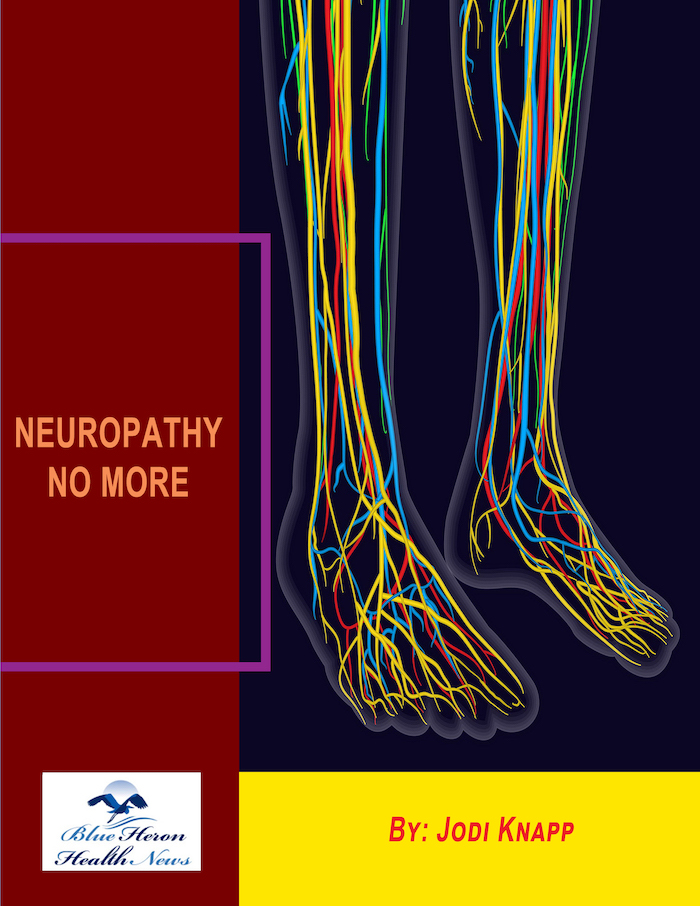
Neuropathy No More neuropathy No More By JODI KNAPP neuropathy is one of the most painful diseases which can make people suffer a lot. Even though medical science has progressed a lot, it could not really found a solution for this condition. This is because the condition is deep routed. You have to make sure that you are changing some of the lifestyle patterns to get relief from the symptoms. The Neuropathy No More is exactly what you need for that. This program is quite helpful and can provide you with all the important information that you will need to ensure better life without the symptoms.
How do corticosteroids help in treating neuropathy?
Corticosteroids are often used in the treatment of neuropathy when the condition involves inflammation or autoimmune reactions that are affecting the nerves. While corticosteroids do not directly repair nerve damage, they can help reduce inflammation, alleviate pain, and manage symptoms associated with neuropathies that have an inflammatory component. Here’s how corticosteroids help in treating neuropathy:
1. Reducing Inflammation
- Many types of neuropathy, particularly autoimmune-related neuropathies like Guillain-Barré Syndrome, Chronic Inflammatory Demyelinating Polyneuropathy (CIDP), or autoimmune-mediated peripheral neuropathy, involve inflammation of the nerves.
- Corticosteroids, such as prednisone, work by suppressing the immune system and decreasing inflammation in the affected areas. This can reduce the swelling around nerves, which may help relieve pain and improve nerve function.
- By targeting the inflammatory process, corticosteroids can help prevent further damage to nerve fibers and demyelination (damage to the protective myelin sheath around nerves).
2. Relieving Pain
- Neuropathic pain is often caused by nerve inflammation or nerve compression. In conditions where inflammation is a significant contributor to pain, corticosteroids can provide pain relief by reducing the inflammatory response.
- The anti-inflammatory action of corticosteroids can also help alleviate other symptoms of neuropathy, such as tingling, burning sensations, or muscle weakness, which are often exacerbated by inflammation.
- In cases where neuropathy is due to conditions like herniated discs or spinal stenosis, corticosteroid injections (often administered epidurally or directly into the affected area) may help reduce nerve compression and relieve associated pain.
3. Decreasing Immune Response (in Autoimmune Neuropathy)
- In autoimmune-related neuropathies, the body’s immune system mistakenly attacks its own nerves. Corticosteroids work by suppressing the immune response and reducing the production of inflammatory chemicals, such as cytokines and prostaglandins, which contribute to nerve damage.
- By modulating the immune system, corticosteroids can slow the progression of autoimmune neuropathies and help prevent further damage to nerve tissues.
4. Managing Acute Exacerbations
- In certain types of neuropathies, particularly CIDP, symptoms may flare up periodically. Corticosteroids are often used during these acute exacerbations to rapidly reduce inflammation and stabilize the condition.
- In cases of Guillain-Barré Syndrome, corticosteroids may be used to reduce the severity of the inflammatory response that leads to rapid nerve degeneration. However, the use of corticosteroids in Guillain-Barré is somewhat controversial, as plasma exchange or IV immunoglobulin (IVIg) may be preferred for this condition. Still, corticosteroids can play a role in managing acute flare-ups in some neuropathies.
5. Supporting Nerve Regeneration (Indirect Benefit)
- By reducing inflammation and preventing further damage to nerves, corticosteroids may help preserve nerve function and provide a better environment for nerve healing or regeneration.
- While corticosteroids do not directly stimulate nerve repair, by mitigating the ongoing inflammatory damage, they can create conditions that allow the nerve tissues to recover more effectively once inflammation has been controlled.
6. Corticosteroid Injections
- In cases where neuropathy is caused by nerve compression, such as with carpal tunnel syndrome or radiculopathy (nerve root compression from a herniated disk), corticosteroid injections can be highly effective. These injections deliver a concentrated dose of steroids directly to the area of inflammation, providing targeted relief.
- Epidural steroid injections are commonly used for conditions like spinal stenosis or herniated discs, where inflammation around the spinal nerves causes pain and neuropathy symptoms.
Considerations and Side Effects
- Short-Term Use: Corticosteroids are generally considered for short-term use due to potential side effects associated with long-term use, such as weight gain, osteoporosis, diabetes, and increased susceptibility to infections.
- Side Effects: Chronic use of corticosteroids can lead to adrenal suppression, gastrointestinal issues, weight gain, mood changes, and increased blood sugar levels. These side effects limit their long-term effectiveness and necessitate careful monitoring during treatment.
- Effectiveness: Corticosteroids are most effective in neuropathies that have a clear inflammatory or autoimmune basis. They may be less effective or inappropriate for diabetic neuropathy, chemotherapy-induced neuropathy, or neuropathies that are caused by metabolic factors or genetic conditions.
Conclusion
Corticosteroids can be beneficial in managing neuropathy, especially when the condition has an inflammatory or autoimmune origin. They help reduce inflammation, alleviate pain, and potentially improve nerve function. However, their use is generally recommended for short-term management or during acute flare-ups of neuropathy, and they must be used cautiously due to the risk of side effects, particularly with long-term use. In some cases, steroid injections may be an effective alternative to oral corticosteroids, providing targeted relief for specific types of neuropathy.
Neuropathy No More neuropathy No More By JODI KNAPP neuropathy is one of the most painful diseases which can make people suffer a lot. Even though medical science has progressed a lot, it could not really found a solution for this condition. This is because the condition is deep routed. You have to make sure that you are changing some of the lifestyle patterns to get relief from the symptoms. The Neuropathy No More is exactly what you need for that. This program is quite helpful and can provide you with all the important information that you will need to ensure better life without the symptoms.